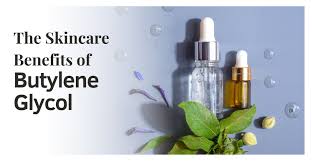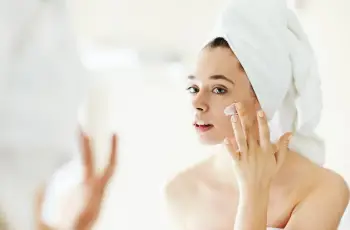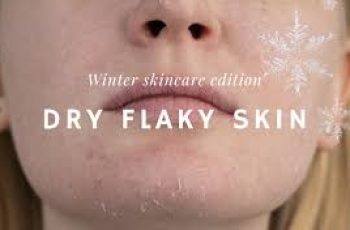
Can You Use Butylene Glycol with Retinol? A Complete Skincare Guide
In the ever-evolving world of skincare, certain ingredients gain momentum due to their effectiveness and versatility. Butylene glycol is one such ingredient that has become a staple in many beauty products.
But what exactly is it? How does it work? And importantly, can you safely use butylene glycol with retinol?
If you’re curious about this combo or just want to learn more about butylene glycol and its skin benefits, this article will guide you through everything you need to know.
What Is Butylene Glycol?
Butylene glycol, often abbreviated as BG, is a type of organic alcohol derived from petroleum. Don’t let the “petroleum” tag scare you—this ingredient is widely used and considered safe in skincare.
Typically found in liquid form, butylene glycol is included in many types of skincare and haircare products.
It’s prized for its multifunctional benefits, which include acting as an emollient, humectant, and solvent.
The Many Roles of Butylene Glycol in Skincare
Emollient: Butylene glycol helps soften the skin by forming a protective barrier that prevents moisture loss throughout the day. This keeps your skin feeling smooth and supple.
Humectant: This means it attracts water from the environment and helps lock it into your skin, promoting a plump and hydrated complexion.
Solvent: It helps dissolve other ingredients, improving their absorption and effectiveness on the skin.
Why Is Butylene Glycol So Popular?
One big reason is that it enhances product texture and absorption. Butylene glycol breaks down residues and impurities on the skin’s surface, allowing other ingredients to penetrate more effectively.
Additionally, it’s considered a safer alternative to propylene glycol, another common ingredient which has faced criticism over potential irritation and sensitization.
Is Butylene Glycol Safe for Daily Use?
Yes! It’s generally well-tolerated and suitable for almost all skin types, including sensitive skin, although those with extremely sensitive or allergy-prone skin should approach with caution.
If you’re unsure whether butylene glycol suits you, it’s always best to consult a dermatologist before adding it to your routine.
What Is Retinol?
Retinol is a derivative of vitamin A and is renowned for its anti-aging benefits. It boosts collagen production, increases cell turnover, and smooths fine lines and wrinkles.
Retinol also helps to fade pigmentation, unclog pores, and improve overall skin texture, making it one of the most powerful skincare ingredients available.
Can You Use Butylene Glycol with Retinol?
Absolutely! Butylene glycol pairs very well with retinol. Its hydrating and barrier-supporting properties help mitigate some common side effects of retinol, like dryness and irritation.
Because retinol can be potent and sometimes harsh, butylene glycol’s moisturizing effects keep your skin barrier strong and hydrated, allowing retinol to work more comfortably and effectively.
How to Use Butylene Glycol and Retinol Together
To maximize the benefits, apply products containing butylene glycol and retinol in the right order and with proper timing:
Cleanse: Start with a gentle cleanser.
Apply Retinol: Use your retinol product on clean, dry skin.
Wait: Give your skin 10-15 minutes to absorb the retinol.
Apply a Moisturizer Containing Butylene Glycol: Lock in hydration and soothe your skin.
Sunscreen (Morning): Always apply sunscreen during the day since retinol increases sun sensitivity.
This method ensures retinol penetrates effectively while butylene glycol moisturizes and supports your skin’s natural defenses.
Why Might You Want to Avoid Butylene Glycol?
While butylene glycol is safe for most, people with highly sensitive or allergy-prone skin may experience irritation, redness, or itchy patches.
If you notice these symptoms, stop using products containing butylene glycol and consult a dermatologist for advice.
Is Butylene Glycol Good for Your Face?
Yes, for the majority of skin types, it is beneficial. Its moisturizing, barrier-supporting, and absorption-enhancing properties contribute to healthier, more resilient skin.
Butylene glycol also stabilizes formulations with potent active ingredients like vitamin C, glycolic acid, salicylic acid, and retinol, improving their efficacy and shelf life.
Patch Testing: Why It’s Essential
Whenever trying new skincare ingredients, especially potent actives or multi-functional compounds like butylene glycol, perform a patch test.
Apply a small amount of the product on your inner forearm or behind the ear and wait 24 hours to check for any adverse reactions like redness, swelling, or itching.
This simple step helps prevent widespread irritation on your face.
Butylene Glycol vs. Glycolic Acid: What’s the Difference?
The similarity in their names often causes confusion, but these are very different ingredients.
Glycolic Acid: An alpha hydroxy acid (AHA) used for exfoliation. It removes dead skin cells and promotes cell turnover but can be drying or irritating if overused.
Butylene Glycol: A humectant and solvent that hydrates and helps other ingredients absorb. It does not exfoliate.
So, while glycolic acid renews skin texture through exfoliation, butylene glycol focuses on hydration and improving formula stability.
Is Butylene Glycol Non-Comedogenic?
This is a bit nuanced. Butylene glycol rates moderately on the comedogenic scale, meaning it has the potential to clog pores in some people.
If you have oily or acne-prone skin, monitor how your skin reacts.
For many, its hydrating qualities actually help balance oil production and prevent breakouts, but always use products suited to your skin’s tolerance.
The Final Word on Butylene Glycol and Retinol
Safe to Use Together: Butylene glycol complements retinol well, reducing irritation and dryness.
Hydration Hero: BG locks moisture in, keeping skin barrier strong.
Gentle: Suitable for most skin types but proceed cautiously if highly sensitive.
Always Patch Test: Avoid surprises with new skincare additions.
Use Sunscreen: Retinol increases sun sensitivity — daily SPF is non-negotiable.
Have Questions or Need Skincare Tips?
Feel free to follow us on Instagram or reach out to our skincare experts for personalized advice. Understanding your skin’s unique needs is key to a healthy, glowing complexion.
Thank you for reading! Ready to incorporate these ingredients safely? Let me know if you want tips on the best retinol products paired with butylene glycol or how to build a balanced skincare routine.
Would you like a step-by-step beginner’s routine or a list of recommended products featuring these ingredients? Just ask!
If you want, I can also create a FAQ or myth-busting article about butylene glycol and other skincare ingredients next.


